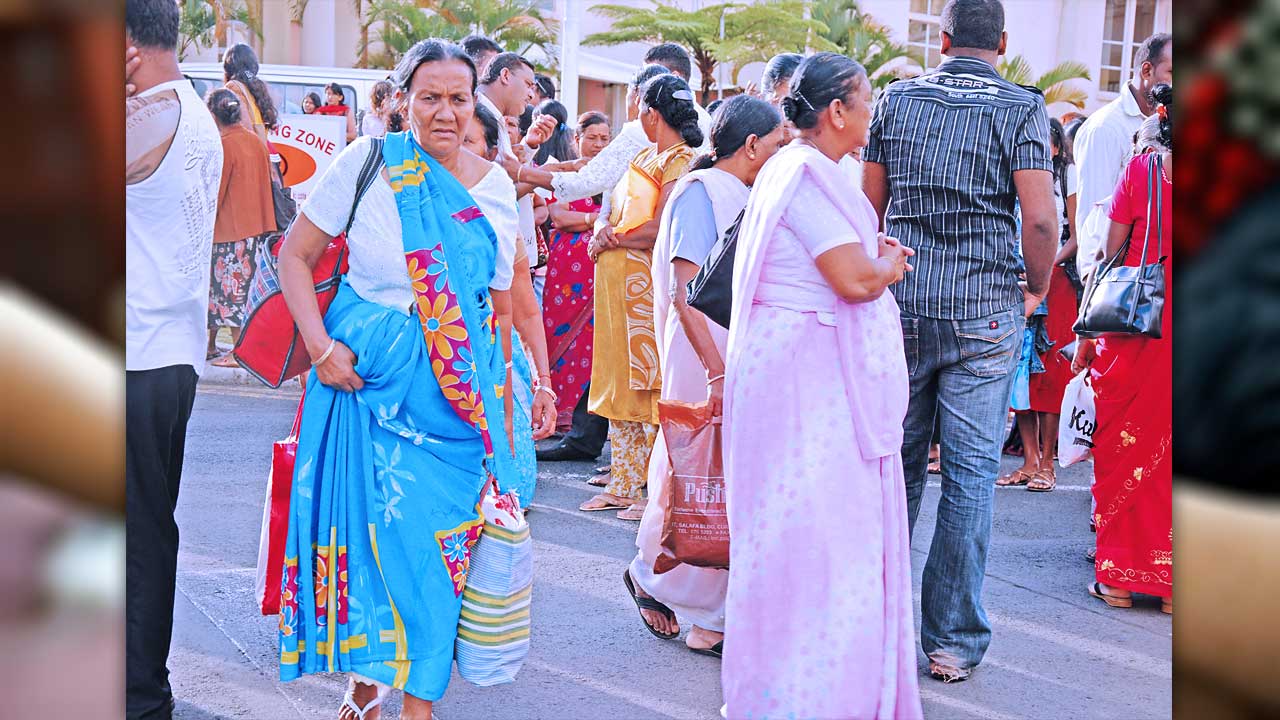
The International Day of Older Persons will be observed on 1st October 2016. The theme for this year is “Take a Stand Against Ageism”. In Mauritius, coincidentally, a High Level Committee has been set up last week to review the pension system and formulate financially sustainable and implementable recommendations.
The pension is again the subject of debates. After a first attempt to introduce targeting system in the payment of pensions in 2003, this time the government has set up a “High-Level Committee” in order to review the pension system. The committee is expected to submit its recommendations by February 2917. The budget of the Ministry social security for the financial year 2016/2017 is Rs 21.2 billion. The ‘National Pension Management’ alone costs the ministry a whopping sum of Rs 19.1 billion. Old age pension is one of the items that weigh a lot.
Globally, the number of persons aged 60 years or more is expected to reach 1 billion by the year 2020, and perhaps 2 billion by 2050. In developed countries, one in four old person lives alone while in developing countries, this ratio is lower, with one in ten persons living on their own.
According to official figures of Statistics Mauritius, the percentage of older persons (aged 60 or over) in Mauritius is 14.4% of total population (it was 9% in the year 2000). Older persons will account for 20.5% of the population in 2026 and will further increase to29.5% in 2051. In 2011, Mauritius had about 151,540 persons aged 60 or more. This figure will almost double in 20 years’ time to reach 306,420 (see tables below). In 2051, the projection of the number of elderly people is 369,215. In contrast, the size of the active population (age group 20-59), which was estimated at 756,712 in 2011 will increase by a further 23,000 in 2021. However, the number will fall to 750,750 in 2031 and 647,229 in 2051. This is partly due to a falling birth rate. This situation also means that, if today there are five active persons to support each retiree, this ratio will fall to 2.5 persons for one retiree in 2031 and 1.75 persons for 1 retiree in 2051.
While in the future the pension bill will be huge, the size of the working population will be reduced, thus compromising our ambition to become a high income nation. This is one of the reasons why issues ‘targeting’ and ‘means-testing’ regarding pension payment frequently crop up. However, there has never been political consensus on the issue nor has civil society ever backed such an eventuality. Those against targeting argue that everyone has the right to an old-age pension, irrespective of his financial status, as everyone has contributed to the economy, directly or indirectly, during his working life. Excluding some people from the system will be unjust.
The authorities have taken some measures in the past, such as extending the retirement age to 65 years old. The pension issue being very sensitive, the debate is ongoing.

 Zohra Gunglee: « Targeting is inappropriate »
Zohra Gunglee: « Targeting is inappropriate »
Zohra Gunglee, economist, explains to us the problems associated with targeting. “One of the staunchest debates in the field of welfare state is the issue of either providing universal pension or merely targeting the poor and needy. From an economic point of view, it is often said that targeting is better as pensions reach the needy and there is no drain on national revenue. But implementing an efficient cost-effective and just system is very complex. Indeed, with universal pension, those who do not deserve it still receive it. Targeting is said to assist in eradicating poverty and inequality between rich and poor. However, in developing countries, there is no proper mechanism to precisely target those who deserve. The existence of a large informal economy makes matters even more complicated. Even in developed countries, precise targeting systems still have a margin of error.
Furthermore, a person who owns wealth may still be short of revenue to sustain a living. Often the wealth is attached in properties that have a book value but not realisable. With a targeting system, it may also happen that some people who deserve a pension are excluded. On the other hand, with universal pension, there is no margin of error, and no implementation cost of complex system. A targeting system may lead to social unrest if people who feel they deserve it are excluded, or if people feel those not deserving are included! Selection of recipients might also be arbitrary. Targeting will increase dishonesty as some people may hide their real revenues in order to benefit. Those who are honest enough to declare their status are penalized. Finally, targeting might encourage corrupt practices as unscrupulous officers might be tempted to ask for bribes in exchange for their discretionary power.”
 Vishal Ragoobur: “A political decision needed”
Vishal Ragoobur: “A political decision needed”
In an interview to Défi Media this week, Vishal Ragoobur, economist, maintains that the pension issue needs to be debated among all stakeholders in order to reach an equitable solution. Regarding targeting, he is of the view that the universal Basic Retirement Pension brings solace to many older persons. Without this social aid, these people would face difficulties. Pension recipients are also consumers and they impact positively on the economy. Regarding targeting, he says if ever such a system is introduced, it should not become an administrative burden. In any case, any targeting system must be just and equitable. He says we cannot ignore the contribution of people to the economy, hence the complexity of the issue, and it is best for the government to take a political decision.
Main Achievements in 2015/16
The main achievement of the Ministry of Social Security during the last financial year was the payment of an increased pension to about 250,000 beneficiaries of social benefits. The basic pension was raised to Rs 5,000 following an electoral promise in December 2014. Other main achievements are as follows:
- 13,267 families, beneficiaries of National Empowerment Foundation have been registered and assessed under the Social Register of Mauritius
- Counselling services provided to 3,104 cases related to social problems
- The project on Recognition of Prior Learning (RPL) in Social Work Practice successfully implemented with the collaboration of UNDP and participation of NGOs; 20 social workers from Mauritius and 12 from Rodrigues certified for RPL
- 3 best entrepreneurship projects are benefiting from a cash grant of Rs 1 million each under the Social Entrepreneurship Award organised in collaboration with the SBM Ltd
- 30 NGOs supported for social entrepreneurship micro projects.
- 116 persons with disabilities trained and employed via the Training and Employment of Disabled Persons Board.
- 613 carers offered informal training to look after the elderly and persons with disabilities
- 8 boys and 10 girls rehabilitated in probation institutions under the aegis of the Ministry
Strategic Direction 2016-2019
- Enhance protection and security of the elderly as well as residents of Charitable Institutions and Residential Care Homes.
- Improve the legal framework to remove any form of discrimination against persons with disabilities and provide for an appropriate institutional arrangement to support the Disability Sector.
- Review the pension system, including the National Pensions Fund, to ensure sustainability and adequate income replacement in view of the ageing population.
- Strengthen the capacity of NGOs with a view to professionalising the social services sector
- Enhance social assistance through the use of the Social Register of Mauritius (SRM) for better and more responsive social policy formulation and for implementation of new social schemes targeting the most vulnerable groups of the society.
 J'aime
J'aime














